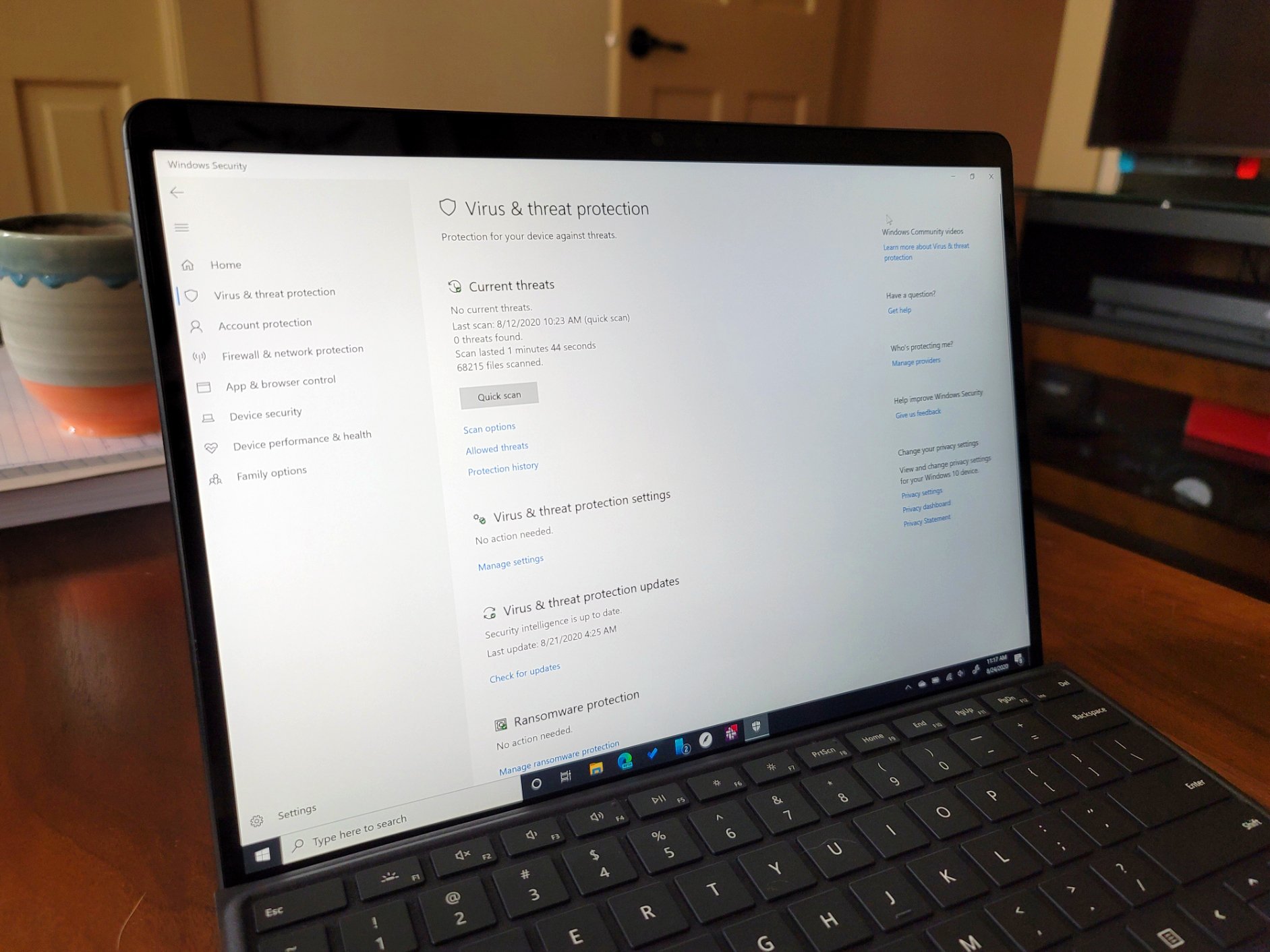This Windows 10 security setting will stop your PC from slowing down
Potentially unwanted apps can slow down your PC, and Windows 10 will soon block them by default.

What you need to know
- Microsoft Defender and Microsoft Edge will block potentially unwanted apps starting this month.
- The option has been available since the Windows 10 May 2020 Update but hasn't been on by default up to this point.
- Potentially unwanted apps can slow down your PC, try to install other programs, and use your computer's resources for unwanted tasks.
Windows 10's Microsoft Defender and Microsoft Edge will soon automatically block potentially unwanted applications (PUAs) by default. The option to block these types of apps has been available since the Windows 10 May 2020 Update (version 2004) but has been disabled by default up to this point. Starting this month, the option will be enabled by default.
A support page from Microsoft states, "Starting in early August 2021 we'll begin turning it on by default to make it easier for you to keep your systems performing at their best" (via Bleeping Computer).
PUAs are apps that can cause your system to run slowly. They include apps that display ads, use your PC for cryptomining, and software that tries to install other programs on your PC.
Microsoft lists its criteria for PUAs in a support document:
- Advertising software: Software that displays advertisements or promotions, or prompts you to complete surveys for other products or services in software other than itself. This includes software that inserts advertisements to webpages.
- Torrent software (Enterprise only): Software that is used to create or download torrents or other files specifically used with peer-to-peer file-sharing technologies.
- Cryptomining software: Software that uses your device resources to mine cryptocurrencies.
- Bundling software: Software that offers to install other software that is not developed by the same entity or not required for the software to run. Also, software that offers to install other software that qualifies as PUA based on the criteria outlined in this document.
- Marketing software: Software that monitors and transmits the activities of users to applications or services other than itself for marketing research.
- Evasion software: Software that actively tries to evade detection by security products, including software that behaves differently in the presence of security products.
- Poor industry reputation: Software that trusted security providers detect with their security products. The security industry is dedicated to protecting customers and improving their experiences. Microsoft and other organizations in the security industry continuously exchange knowledge about files we have analyzed to provide users with the best possible protection.
It's possible to exclude files from being scanned by Microsoft Defender. People will also still have the option to turn off the feature, which can be done with the following steps:
- Open Windows Security.
- Go to Settings.
- Open App & browser control.
- Open Reputation-based protection settings.
- Turn Potentially unwanted app blocking on or off.
- Check or uncheck Block apps and Block downloads to your preference.
Blocking downloads will stop Microsoft Edge from downloading PUAs. Blocking apps will have Microsoft Defender scan for PUAs.
All the latest news, reviews, and guides for Windows and Xbox diehards.

Sean Endicott is a news writer and apps editor for Windows Central with 11+ years of experience. A Nottingham Trent journalism graduate, Sean has covered the industry’s arc from the Lumia era to the launch of Windows 11 and generative AI. Having started at Thrifter, he uses his expertise in price tracking to help readers find genuine hardware value.
Beyond tech news, Sean is a UK sports media pioneer. In 2017, he became one of the first to stream via smartphone and is an expert in AP Capture systems. A tech-forward coach, he was named 2024 BAFA Youth Coach of the Year. He is focused on using technology—from AI to Clipchamp—to gain a practical edge.
